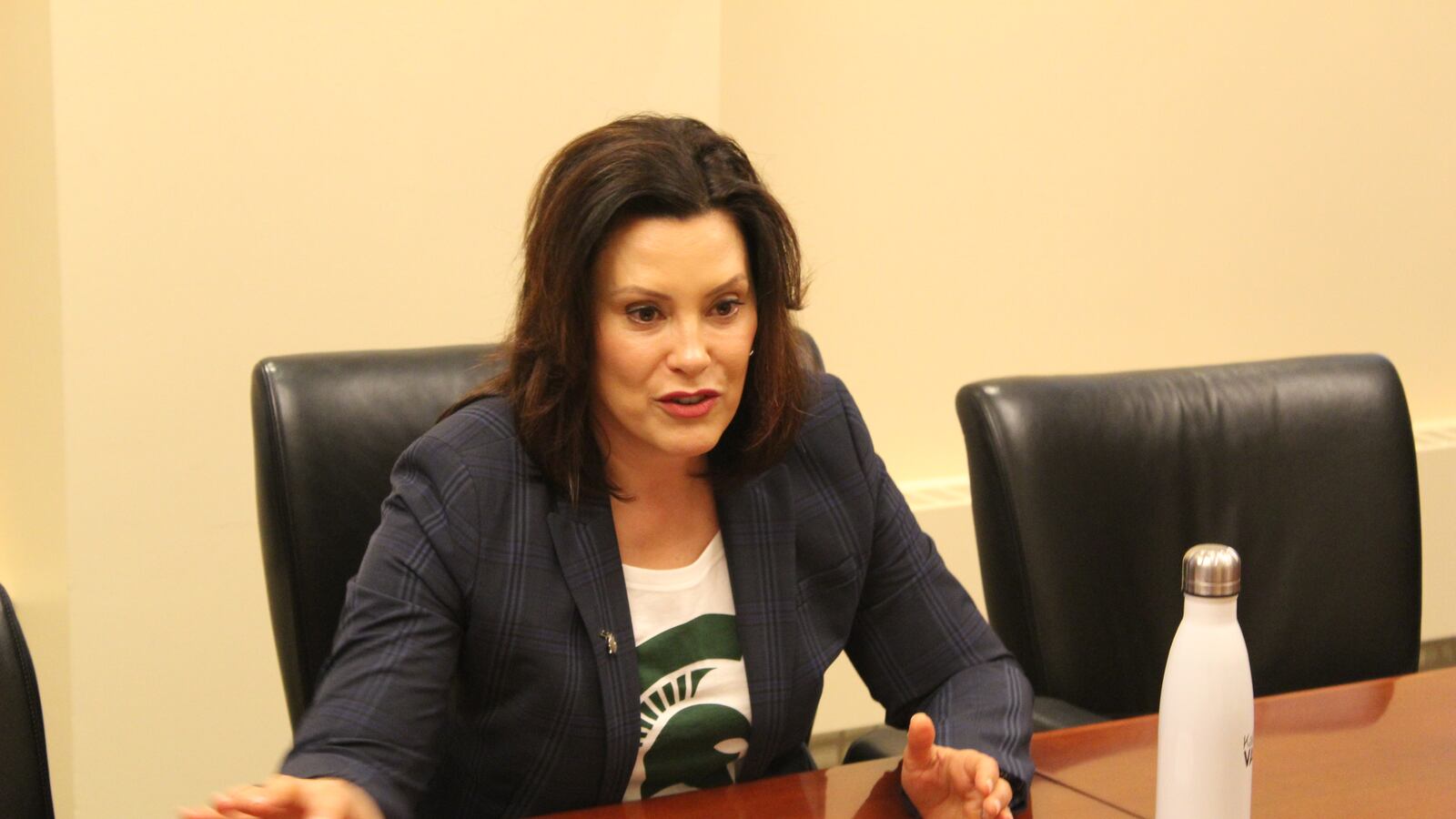Fresh off a bruising battle over boosting education funding, Gov. Gretchen Whitmer is coming back with a plan to add more support for Michigan’s most vulnerable students — without adding a new tax.
Whitmer’s proposed investment in schools would be the largest in two decades. She framed it as a “first step” toward the major funding overhaul that education leaders have been demanding for years. Michigan has one of the nation’s largest funding gaps between low- and high-poverty districts.
The governor is asking lawmakers to increase base per pupil funding by between 1.8% and 2.8%, with larger increases going to districts with lower current funding levels. Her proposal would also increase special education funding by 4% and boost funding for students from low-income families by 11%, adding to an overall increase of 5% to the state’s nearly $16 billion education budget.
It’s far from clear that Whitmer’s ideas will get the traction needed to become law in the GOP-led state legislature, which largely ignored her last set of recommendations. Michigan governors traditionally kick off the state budgeting process by outlining their spending priorities, but the budget is ultimately shaped and passed by lawmakers.
Whitmer’s education proposal is smaller than last year’s, which assumed a massive influx of revenue from a proposed gasoline tax. Republican lawmakers, who control both chambers of the state legislature, shut down the tax and built their own budget, which included a 2% increase in state education spending.
“The revenue pie was expanding in the last budget” proposal, said Craig Thiel, research director for the Citizens Research Council, a nonpartisan think tank. “This time, there’s no tax increase.”
Last year, Whitmer proposed a $120 million boost to special education; the legislature agreed to add $60 million. This year, she’s pushing for $60 million. A proposed increase for at-risk students was scaled down, too, from $102 million last year to $60 million this year.
With no tax increase on the table, education advocates predicted that this proposal would be better received by Republican leaders than the last one, which was historically contentious.
“It seems like they’re listening, which is really good,” William Miller, executive director of the Michigan Association of Intermediate School Administrators, said of GOP leaders. “Last year’s budget process was really difficult, and I don’t see the same thing happening this year.”
Michigan’s education community has been building a case for a drastic overhaul of the state’s school funding system. Report after report has painted a troubling picture: Over the last 20 years, overall funding didn’t keep up with inflation, while test scores stagnated below the national average.
“While we cannot correct decades of underfunding overnight, particularly in the area of education, this budget builds on last year’s budget to provide additional funding,” Whitmer said in a statement.
Whitmer is counting on a projected 0.5% decrease in student enrollment statewide, which frees up money in the state budget. Chris Kolb, Whitmer’s budget director, said the budget proposal also relies on $178 million in cuts to “non-critical services” in various departments of state government.
State leaders remain divided over whether new revenue will be necessary to improve schools.
“Our education plan should recognize all children deserve an opportunity for success, no matter where they live or go to school,” said Rep. Shane Hernandez, the Republican chair of the House appropriations committee, in a statement. He added: “All of this can and should be done without asking Michigan taxpayers to pay more money.”
A study of the cost of education in Michigan concluded that meeting the needs of students would take a major new investment — $3 billion, by one estimate.
Gilda Jacobs, CEO of the Michigan League for Public Policy and a former Democratic state senator, said in a statement that the state is still struggling with the aftermath of business tax cuts passed in 2011 under former Gov. Rick Snyder, a Republican.
“All roads lead back to revenue,” Jacobs said.
Nikolai Vitti, superintendent of the Detroit Public Schools Community District, applauded Whitmer’s proposals, but said in a tweet that he would wait for the legislature to weigh in.
You can read more details on Whitmer’s budget proposal here. Some of its key elements include:
- A shift to a weighted model of funding that sends additional money to students with the most need, such as English learners, students from low-income families, or students with special needs.
- Up to $250 for each educator in the state to pay for classroom supplies that they often buy with their own money.
- $42 million in new funding for free preschool for 4-year-olds from low-income families in areas with low literacy levels and high poverty rates.

